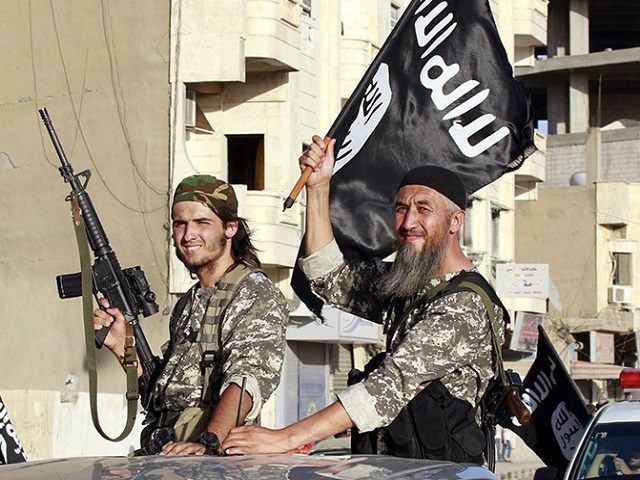The United States-led coalition has damaged the Islamic State (ISIS/ISIL/Daesh) in Syria and Iraq, but evidence shows the strikes have done little to stop the terrorist group’s expansion.
Pentagon officials told The New York Times that recent attacks across Europe prove the Islamic State has expanded past its self-declared Caliphate in Iraq and Syria.
“Defeating the formal military presence of a terrorist group will not significantly mitigate the threat of lone wolf or small independent cells that are based in the West,” explained Foundation for Defense of Democracies member Jonathan Schanzer.
Schanzer found that the Islamic State can attack the West with little money. The materials in Brussels, Belgium, only cost between $10,000 to $15,000.
Deputy Secretary of State Antony J. Blinken stated:
Even as we advance our efforts to defeat Daesh on the front lines, we know that to be fully effective, we must work to prevent the spread of violent extremism in the first place — to stop the recruitment, radicalization and mobilization of people, especially young people, to engage in terrorist activities.
The cheap attacks fit into the Islamic State’s budget, which has fallen. Last December, Army Col. Steve Warren, the spokesman for the coalition, said the airstrikes shut down the majority of the group’s lucrative black market oil business.
“Coalition forces curbed ISIS capacity in the export of oil by 90 percent,” he declared.
However, the airstrikes have only liquidated “10 depots where the Islamic State stored hard currency.” Some officials said one attack in January ruined “tens of millions of dollars.” Others did not express the same optimism.
“There’s a lot less certainty about how much money actually evaporated,” insisted Howard Shatz, senior economist at the RAND Corporation.
Russia’s ambassador to the United Nations recently alleged the Islamic State makes between $100-$200 million a year by selling priceless antiques they seize. Experts previously put the amount at $36 million a year. The Islamic State began profiting off the priceless items when they began their Caliphate in 2014. Illegal antiques “[rank] third in global organized crime.”
Last summer, Facebook shut down as many Arabic-language pages as they could when the owners tried to sell Syrian antiques stolen from areas controlled by the Islamic State. Online auction site eBay has also denied any knowledge of terrorists using the popular website to auction the antiques.
A company statement said that “eBay has absolutely zero interest in having illicit listings of cultural or historical goods appear on our platforms,” adding, “We’re currently looking into the claims of this letter. To date, we are not aware of any direct evidence of listings for items on eBay that resulted from ISIL looting or similar activity.”
Officials said the Islamic State cut salaries of the fighters in its Caliphate. People who have left claim the cuts have caused low morale, but American officials say the terrorists can still pay their fighters.
“There is no simple tool to separate ISIL from its vast wealth,” said Daniel L. Glaser, assistant treasury secretary for terrorist financing.

COMMENTS
Please let us know if you're having issues with commenting.